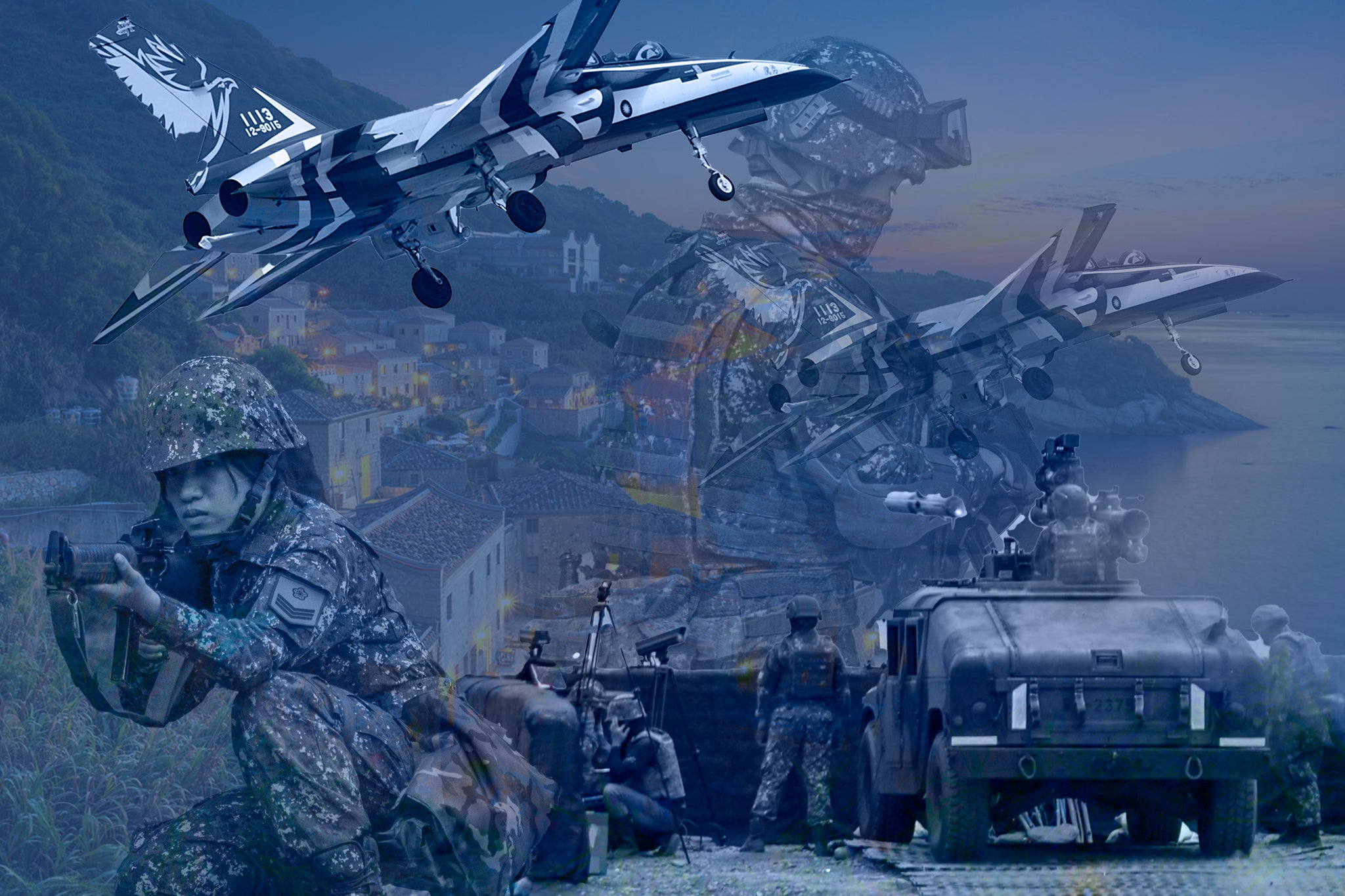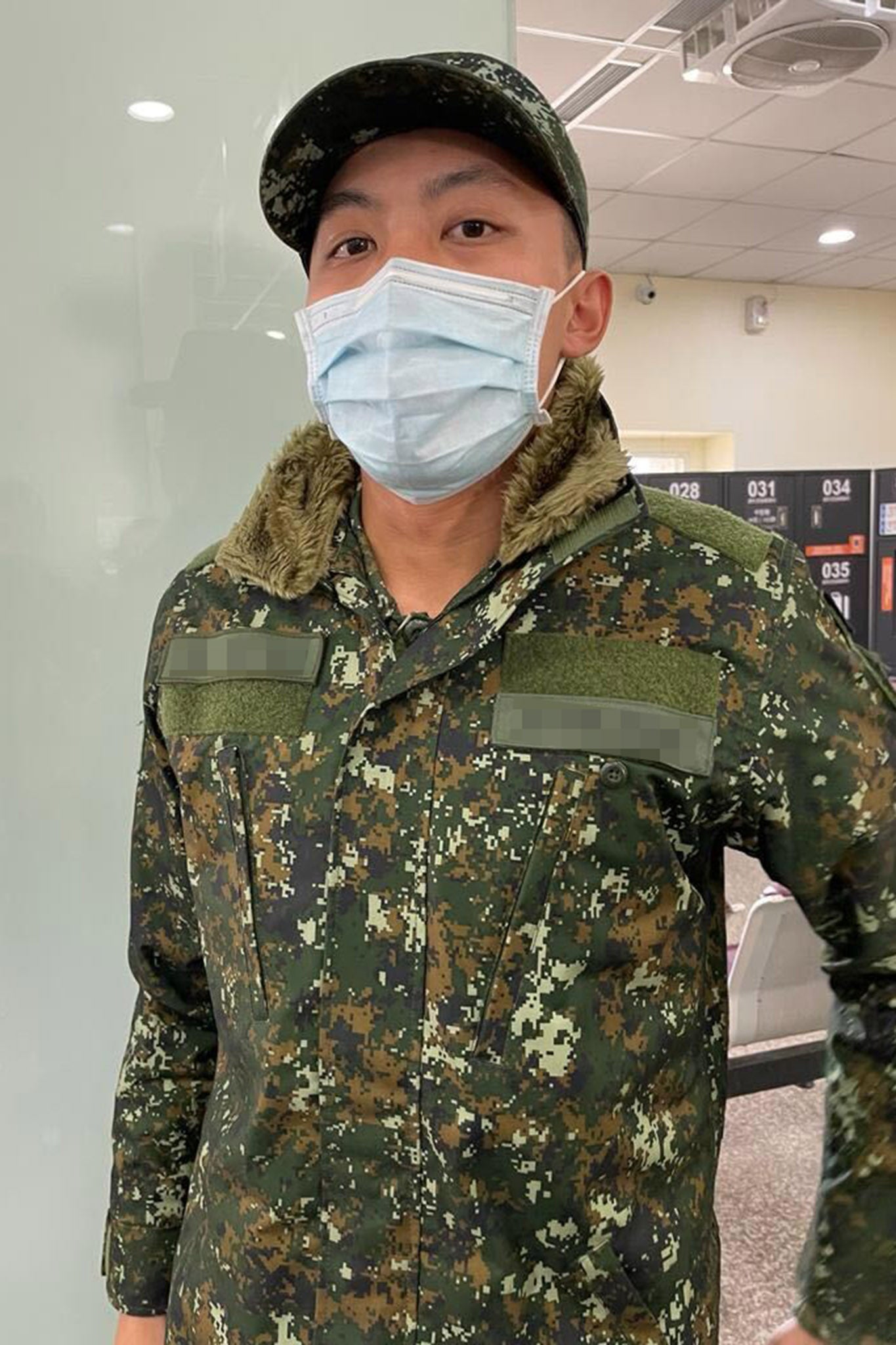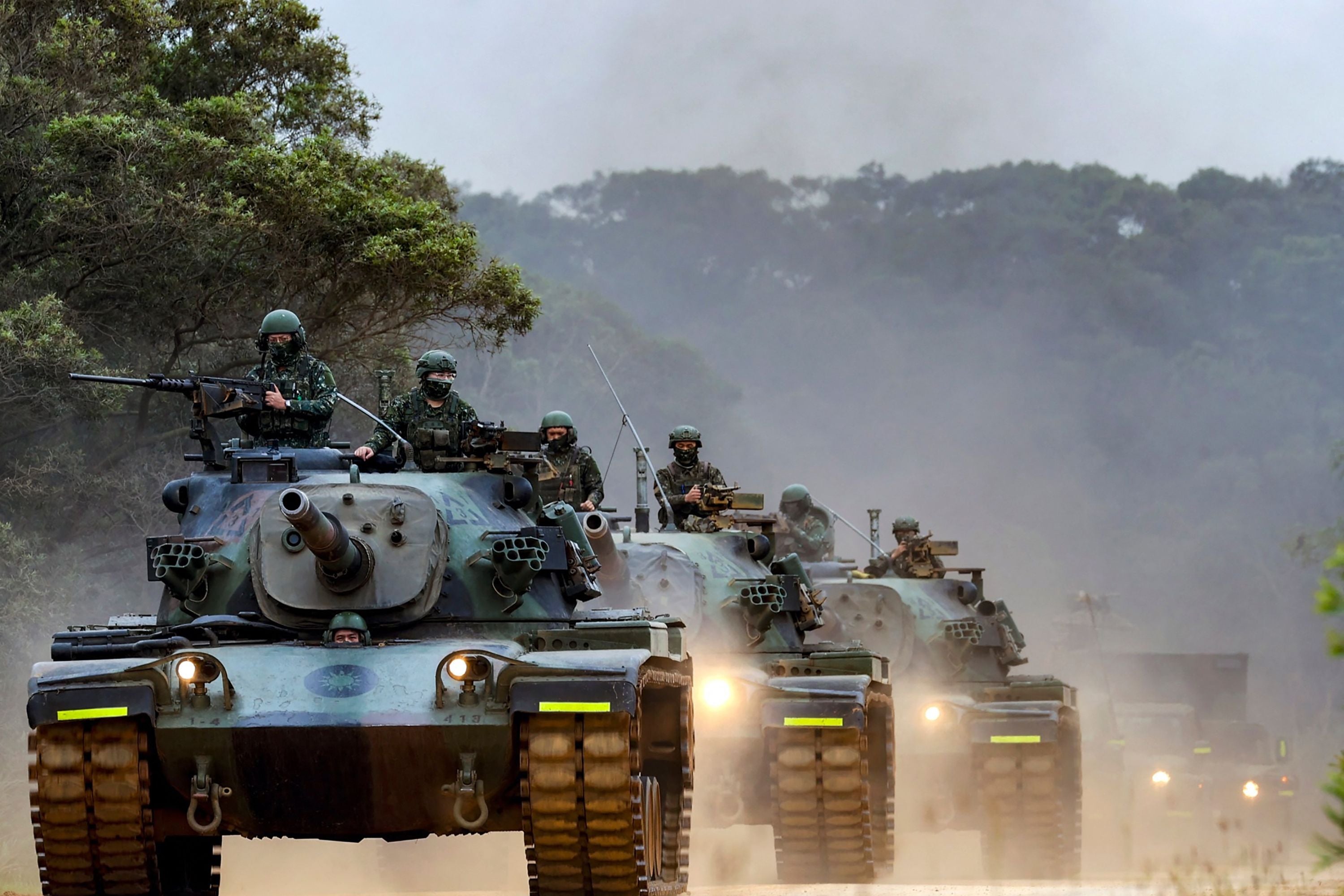Taiwan’s Matsu Islands prepare for a possible China invasion: ‘I don’t want to die, but we have to fight’
Beijing has been ramping up military pressure on Taiwan ahead of crucial elections next week. On the Matsu Islands – which would be the first line of defence if an attack were launched – Kim Sengupta speaks to soldiers and civilians preparing for China to make good on its threats to take control of the nation


Your support helps us to tell the story
From reproductive rights to climate change to Big Tech, The Independent is on the ground when the story is developing. Whether it's investigating the financials of Elon Musk's pro-Trump PAC or producing our latest documentary, 'The A Word', which shines a light on the American women fighting for reproductive rights, we know how important it is to parse out the facts from the messaging.
At such a critical moment in US history, we need reporters on the ground. Your donation allows us to keep sending journalists to speak to both sides of the story.
The Independent is trusted by Americans across the entire political spectrum. And unlike many other quality news outlets, we choose not to lock Americans out of our reporting and analysis with paywalls. We believe quality journalism should be available to everyone, paid for by those who can afford it.
Your support makes all the difference.Sunlight glistens on the deep blue water like flakes of gold; black-headed gulls wheel in circles over slow-sailing fishing trawlers; and palm fronds sway in a gentle breeze on the shoreline. The seas around Matsu Island are a picture of tranquillity.
The calm of the afternoon is suddenly shattered by heavy gunfire – the sound of Taiwanese artillery carrying out drills. It is a reminder that the approaches to these isles will be the “kill zone” in the first line of defence against the invasion long-threatened by China.
Lee, a 30-year-old serving army sergeant, insists that Taiwanese forces will be ready if a conflict begins. His father lives in Shanghai, but that will not, he says, affect his resolve to resist Chinese forces if and when the time comes.
Lee, who asks for his full name not to be published, joined as a volunteer five years ago. “It is our duty as men to serve our country,” he says. “We don’t want a war; some people in the forces have families in China, like me. But that is not something we can afford to think about when we have to defend Taiwan.
“It will not be a surprise if China attacks us; if it happens, it happens. I don’t want to die, my friends don’t want to die. But you need to accept death if you are a soldier.”
Tensions have risen sharply in the Indo-Pacific region as confrontations continue between China and its neighbours backed by international allies. Taiwan – which Beijing wants to unify with the mainland, by force if necessary – has become a focal point. There are elections next week in which the issue of independence from China is a key theme.
While the Ukraine war has reached a bloody stalemate on the icy front lines, and international consternation rises over the staggering toll of civilian lives in Israel’s Gaza assault, what happens in Taiwan is likely to emerge as the first geopolitical crisis of the new year.

Beijing has ratcheted up aggressive military exercises around Taiwan, with its fighter jets and warships infringing Taiwan’s air and naval space as the election campaign has stepped up. China’s president Xi Jinping has declared that his country’s armed forces will be ready for a full-scale invasion by 2027, and their commanders maintain that preparations are on schedule. In his latest New Year’s Eve address, Xi claimed that Taiwan will “surely be reunified” with China.
China’s overall military activity has increased as it carries out a vast expansion of its forces. It rises in scale each time Western naval ships – including American, British, French and Australian vessels – carry out “freedom of navigation” voyages in the international waters Beijing claims as its own. There are also spikes in response to instances in which the international community shows solidarity with Taiwan, such as the visit of the then US House of Representatives speaker Nancy Pelosi to Taiwan last year. Beijing reacted by launching barrages of missiles into waters surrounding Taiwan and starting a major military exercise.
Asymmetric warfare, cyberattacks and disinformation campaigns have also escalated against Taiwan as the elections get closer. The main targets have been the ruling Democratic Progressive Party (DPP), which is campaigning on a theme of Taiwanese sovereignty, as well as sections of the media, civil rights activists, students, and artists’ groups. In effect, all who are deemed to be enemies of the Chinese Communist Party and its autocratic policies.
Two underwater internet cables were cut by Chinese ships a few months ago, effectively cutting off Matsu from the outside world, with flights to the island from the rest of Taiwan as well as public and private life on the island disrupted. It was viewed as a warning of what to expect on a much wider scale if Taiwan seeks to strike a path towards independence.

Matsu and Kinmen, another island between China and Taiwan, experienced fierce fighting between the communist forces under Mao Zedong and the nationalist army of Chiang Kai-Shek as Chiang’s forces retreated from the mainland to Taiwan at the end of the civil war.
The nationalists turned the two islands into fortresses bristling with weapons and thousands of troops. Barricades and mines were placed on the beaches, artillery dug into hills, anti-submarine netting laid into coastal waters, and deep bunkers dug into the ground.
A series of vast underground passageways were built on Matsu – the biggest number of military tunnels in the world – in preparation for the next war, with waterways in which supply vessels and attack crafts were kept hidden.
For 10 years from 1949, the two militaries clashed around the islands, leaving hundreds dead and several thousand injured. Intermittent Chinese shelling continued for the next two decades before an eventual ceasefire was followed by partial de-escalation and the withdrawal of most of the Taiwanese forces.
A gradual thaw in relations led to Chinese visitors coming to the islands and islanders going to the mainland. Some families migrated to begin new lives across the strait.

Some of these fortifications are now tourist attractions. Jiahao Yang is showing his grandsons, aged four and six, one of the Matsu tunnels that has been opened to the public.
As a young officer in the Taiwanese army, he witnessed the final stages of their construction. “It was dangerous work building these tunnels. There was one time when about 50 soldiers were killed; they had taken a break for lunch when big rocks fell on them. There were individual deaths quite regularly, with walls collapsing and also with the detonations that took place,” he recalls. “But the threat from China was very real, and the general feeling was that these sacrifices had to be accepted.”
Captain Yang was on the receiving end of frequent Chinese bombardment. “That was mainly in Kinmen. They used heavy artillery and missiles, but they were quite inaccurate. So they did a lot of damage, mainly to civilians rather than us,” he says.

“Do we face another war with the PRC [People’s Republic of China]? No one wants that, but one hears what they are saying, what Xi is demanding, and it is unfortunately quite possible that they will attack when they think they are ready. Our troops need to be ready as well.”
Lee, the serving army sergeant, says: “We carry out frequent drills, and we look at all possible dangers coming our way. We have good equipment, but we need to have some more navy boats here. They will be a warning to China.”
Lee is a follower of international news. Reflecting on what has happened in Ukraine, he comments: “Once that war started, I had a feeling we would be next. China could follow the example of Russia. I think our allies like the US realise that, and they are helping militarily. We hear we may go on training exercises with them.
“And, of course, we have our own people. The community will fight beside us. They know the land, the details of the tunnels; that will be very useful if the Chinese really do try to take over.”

The Taiwanese government recently increased the duration of national service from four to 12 months as part of a series of measures to prepare the population for a possible conflict. Enrolment in courses for emergency service volunteers, and teaching basic first aid, has risen sharply in the last year.
Chen Chi, a 23-year-old student, is of the view that China will try economic coercion before taking military action against Taiwan. But he and his friends, he insists, are prepared to fight if necessary.
“I have done my four months’ compulsory service already, so I have got the basics. A year would obviously be good; it gives us a better chance to throw them back. But I still think they’ll try other methods before something as risky as an invasion,” he says.
Chen came to Matsu from China with his family as a young boy. He is, he wants to stress, Taiwanese and not Chinese. Others, however, are more reticent about where their loyalties lie.
Yo Tianzhen moved from China to Matsu Island 30 years ago and started a new life as a successful fishmonger. But his ties with the mainland, which he visits three times a year, remain strong.

Yo, 52, does not want to talk about the current political situation or the possibility of war. “I have to live here with these people,” he says. “We get on together, and my family and I have a good life. I wish things would stay the way they are.”
An elderly, semi-retired fisherman nearby is more forthright. “We are all Chinese. Taiwanese are also Chinese. China is good to us, and we are good to China,” he says. “As long as there’s no war, we’ll be OK. But if Taiwan declares independence, there will be war. All the people fear that Taiwan will start a war by declaring independence.”
The fisherman, at 83 years old, does not want his identity revealed. “We are living in a very dangerous time. Things will get unsafe. There are outsiders interfering; the Americans manipulate things. They’ll manipulate a war here,” he predicts.

“This should be a matter between China and Taiwan, but they are trying to make it something bigger. We now keep hearing about Ukraine. What do we care about Ukraine here? Why do they go on about Ukraine? Luckily there still some politicians here who don’t want a war, who want good relations with China; they are trying to stop outsiders interfering.”
The opposition Kuomintang party (KMT) ruled China under Chiang Kai-Shek until the generalissimo lost the mainland to the communists. Ironically, it is now deemed to be the party closest to Beijing, and has been accused of appeasement by those seeking to remove Chinese influence.
The KMT leader of Lienchiang County Government, which oversees Matsu, warns that certain moves by a Taiwanese government could trigger a conflict. Wang Chung Ming also cautions against concluding that the cutting of underwater cables, which isolated the island earlier this year, was a deliberate act by the Chinese. There is, he says, “no evidence to prove this”.
Wang speaks warmly of the benefits of the “Four Links” proposed by China’s President Xi – bridge, water supply, gas and electricity – to create stronger ties between the islands and the mainland.
The stance of the ruling DPP party made these “difficult to establish”, says Wang. “It is now politically sensitive to do this, but we can promote these when the time is right,” he adds.

Wen Lii, the DPP parliamentary candidate in Matsu, dismisses the links proposal as “impractical, unnecessary and expensive” and stresses the importance of not falling for “charm campaigns” that create a “false appearance of cooperation and dialogue”.
Everything possible is being done to avoid war, says Wen, but Taiwan needs to remain vigilant in order to protect its sovereignty. Expressions of international support are welcome, but the country must be ready to protect itself, he says.
Wen compares the situation in Ukraine and that facing his own country. “We are under threat from large authoritarian neighbours. We should express solidarity with Ukraine with our shared links of democracy and support for human rights,” he says.
He adds: “One particularly striking thing that I see from the perspective of Taiwan and Matsu is that Putin used the shared Russian language as a pretext to invade Ukraine. However, his attacks did not discriminate between Russian speakers and Ukrainian speakers.
“In Matsu, we have many people with family ties or friends across the Taiwan Strait. People cherish the cultural heritage shared between coastal China and Matsu. But that does not mean that people want to live under an authoritarian state, and it does not mean that people want to give up their freedom. China will learn this if it invades.”
Join our commenting forum
Join thought-provoking conversations, follow other Independent readers and see their replies
Comments